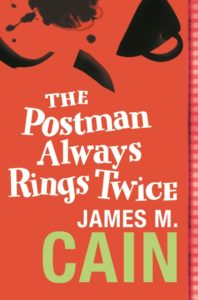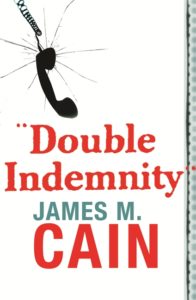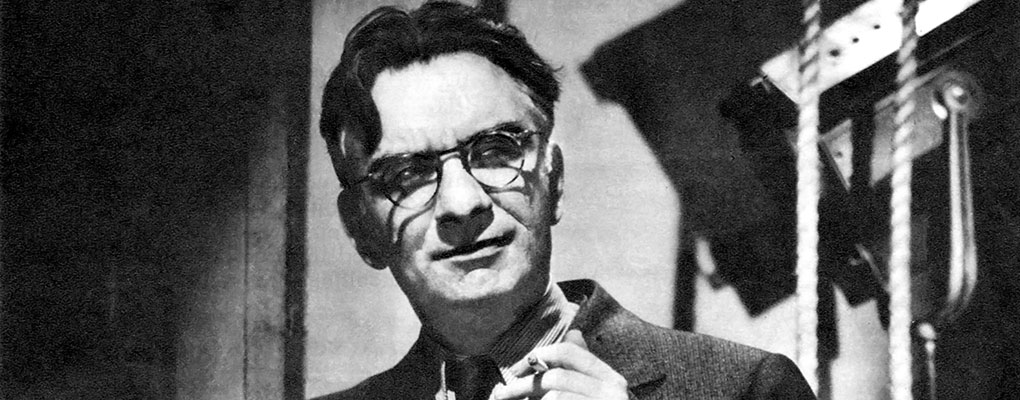Books
Laura Lippman on James M Cain
When I was 21, my sister gave me a set of paperbacks by James M Cain, spiffy re-issues of his six best-known titles. I was in college, with little time for discretionary reading, but I tore through those books more or less in the order that Cain wrote them: The Postman Always Rings Twice (1934); Double Indemnity (1936 – as a magazine serial); Serenade (1937); Mildred Pierce (1941); Love’s Lovely Counterfeit (1942); The Butterfly (1947). It would be an over-simplification to say that these books made me want to write crime novels; at the time, I was just happy to land a job at a Texas newspaper, where my early assignments centered on Rotary luncheons and school board meetings. But a seed was planted. If I were to write fiction, I would like to produce books such as Cain’s – tight, punchy, world-weary, but with characters less cynical than they thought they were.
 Almost nine years later, I landed a job at my hometown paper, the Baltimore Sun. Cain had worked there, too, back in the 1920s, and he had been mentored by its most famous writer, H L Mencken. Being in Cain territory made trying to be Cain seem less audacious. I began my first crime novel. To my disappointment, it was nothing at all like Cain’s work. I don’t know if it was “youth” – I was in my 30s, after all – or a rueful optimism about the human condition that I couldn’t quell. But I think the real problem was that I was a pleaser at heart. I wanted people to like me. That meant they had to like my main character. (The joke was on me: plenty of people found Tess Monaghan, the private investigator in my first seven books, to be a little whiney and cantankerous.)
Almost nine years later, I landed a job at my hometown paper, the Baltimore Sun. Cain had worked there, too, back in the 1920s, and he had been mentored by its most famous writer, H L Mencken. Being in Cain territory made trying to be Cain seem less audacious. I began my first crime novel. To my disappointment, it was nothing at all like Cain’s work. I don’t know if it was “youth” – I was in my 30s, after all – or a rueful optimism about the human condition that I couldn’t quell. But I think the real problem was that I was a pleaser at heart. I wanted people to like me. That meant they had to like my main character. (The joke was on me: plenty of people found Tess Monaghan, the private investigator in my first seven books, to be a little whiney and cantankerous.)
 Over 20 years of writing, I learned that character dictates plot, not the other way around. In order to write a noir story worthy of Cain, I’d have to be willing to risk writing about people who were anything but likeable. The problem was, I always have empathy for the people I write about. But one can have empathy for people who do horrible things, I found out. My hunch is that Cain had empathy for all his scheming lovers.
Over 20 years of writing, I learned that character dictates plot, not the other way around. In order to write a noir story worthy of Cain, I’d have to be willing to risk writing about people who were anything but likeable. The problem was, I always have empathy for the people I write about. But one can have empathy for people who do horrible things, I found out. My hunch is that Cain had empathy for all his scheming lovers.
When Cain wrote Mildred Pierce, he told a friend that he wanted to write about the “oldest” story – the woman who uses men to get what she wants. I’m not sure it’s the oldest story, but it’s one that has always interested me. Polly Costello – if that is her name – sashayed into my imagination in much the same way she walks into the small Delaware town of Belleville. She knows who she is and what she wants. And she’s willing to do just about anything to get it. To call her an homage to Cain seems almost audacious – but she is very much a product of a thirty-year obsession.
How many James M Cain books have you read? Let us know in the comments below!



Please note: Moderation is enabled and may delay your comment being posted. There is no need to resubmit your comment. By posting a comment you are agreeing to the website Terms of Use.